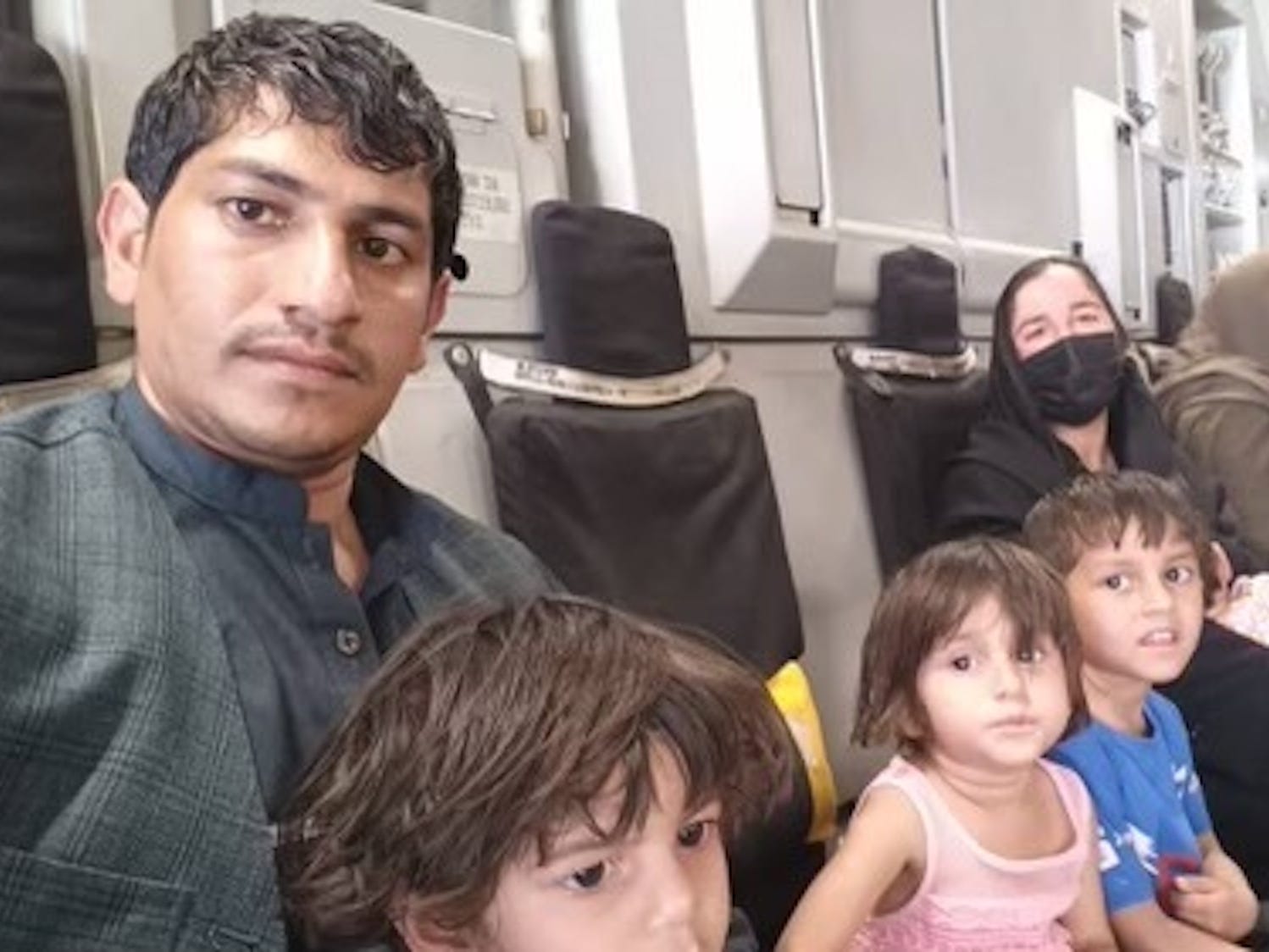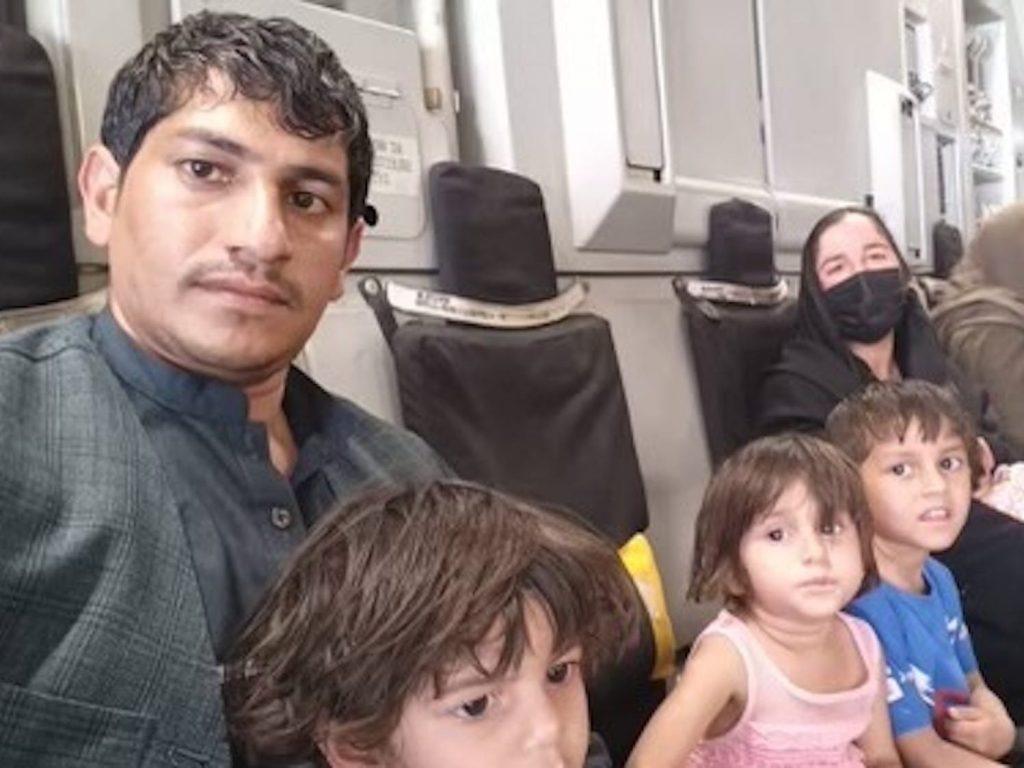
Courtesy of Thomas Schueman
- An Afghani interpreter had been facing threats for working with the US since 2010.
- Marine Corps Maj. Thomas Schueman told Insider he's been working to get his interpreter, Zak, a visa since 2015.
- Schueman said Zak finally left Afghanistan for Qatar on Wednesday thanks to an Air Force friend.
- Visit Insider's homepage for more stories.
A US Marine who spent the past six years working to get his Afghan interpreter a special immigrant visa to the US had to call in a favor to get him and his family safely out of Afghanistan.
Marine Corps Maj. Thomas Schueman told Insider that while deployed in Afghanistan in 2010, his interpreter, Zak, was like his right-hand man, stepping above and beyond his role as just a translator.
Zak saved Schueman's life on multiple occasions: He ran through an improvised minefield to prevent an ambush from the Taliban and picked up a gun to fire at attackers when Schueman and his platoon were helping an injured marine.
The interpreter also faced threats from the Taliban long before they took over Kabul last week, Schueman told Insider. Schueman said in one instance, after his platoon had killed some Taliban fighters and captured their radios and guns, they made it clear they would kill Zak.
"They came over that radio and they started saying, '[Zak] we know who you are. We know you're from Kunar.
We know your family, we're going to kill you,'" Schueman said.
"So, the Taliban already knew who he was in 2010 and were already threatening to kill him."
The Marine had been coordinating to get Zak out of Kunar province since July 15, but encountered multiple obstacles - from trouble getting funds wired over to issues getting passports - not to mention the risks of getting Zak, his wife, and four kids all under 5 years old, to the airport.
"Since we started to work on getting Zak out of Kunar it's been one tragedy after the other and very, very frustrating and very hard on him, obviously, and very hard on his family and children," Schueman told Insider.
On Wednesday, Zak, his wife, and four kids were helicoptered out of Afghanistan. They're now in semi-temporary housing in Qatar, but the process was long and exhausting. Two of Zak's kids were so dehydrated by the time they made it to Qatar that they were put on IVs, Schueman told Insider.
Zak first started the visa process in 2015 and was rejected in 2016, Schueman said. The pair spent the next five years appealing the decision and reaching out to US officials and news organizations to get Zak's visa approved. Schueman told Insider that altogether Zak had worked with the US for three years and his service was properly documented.
Despite all their efforts, Zak and his family ultimately got out because Schueman was able to contact an Air Force friend who was in Afghanistan.
Schueman reached out to the friend (who he did not name) in mid-July and told him about Zak's situation. The friend said because Zak was not in Kabul, he was "dead" and "had no chance" of getting out.
As the Taliban took over and Afghans began rushing to leave, Schueman worked tirelessly to get Zak and his family to the capital. Once they made it, he asked his Air Force friend to find and help them.
"I think it's important to know that he didn't get out because the process was working. Zak got out through that same Air Force friend, who risked his life, jumped over the wall and pulled that family to safety and got him personally," Schuman said. "Like, that's not how it's supposed to work. It shouldn't be an air force major who's doing a favor to his friend that he met in 2008 at officer training."
"And that's how we got Zak out," he added.
Schueman told Insider the US not granting Zak a visa is a "betrayal." He said interpreters were promised a visa in return for their work with the US and those who upheld "their end of the bargain" were let down.
"I'm not advocating that ... we should go get every person out of Afghanistan," he said. "What I've been a staunch advocate for this whole time is that since 2009, the US created a special immigration visa program for Afghan interpreters who served the US and are at subsequent risk due to their service with the US."
"I mean, those terms are black and white and Zak undoubtedly not only met the terms of that deal, but exceeded them in so many ways," Schueman said. "He upheld his end of the bargain. What do you call it when you run out on a deal, a contract that you've signed and you know its implications. It's not like, 'Oh, that was a bad real estate deal or that was a bad financial transaction deal.' It's like now you are going to kill this person because you didn't do what you said you were going to do."
"To me, I think betrayal is that," Schueman said. "I mean, anybody who qualified for that program and applied for that program, if they're not evacuated, we betrayed them."

